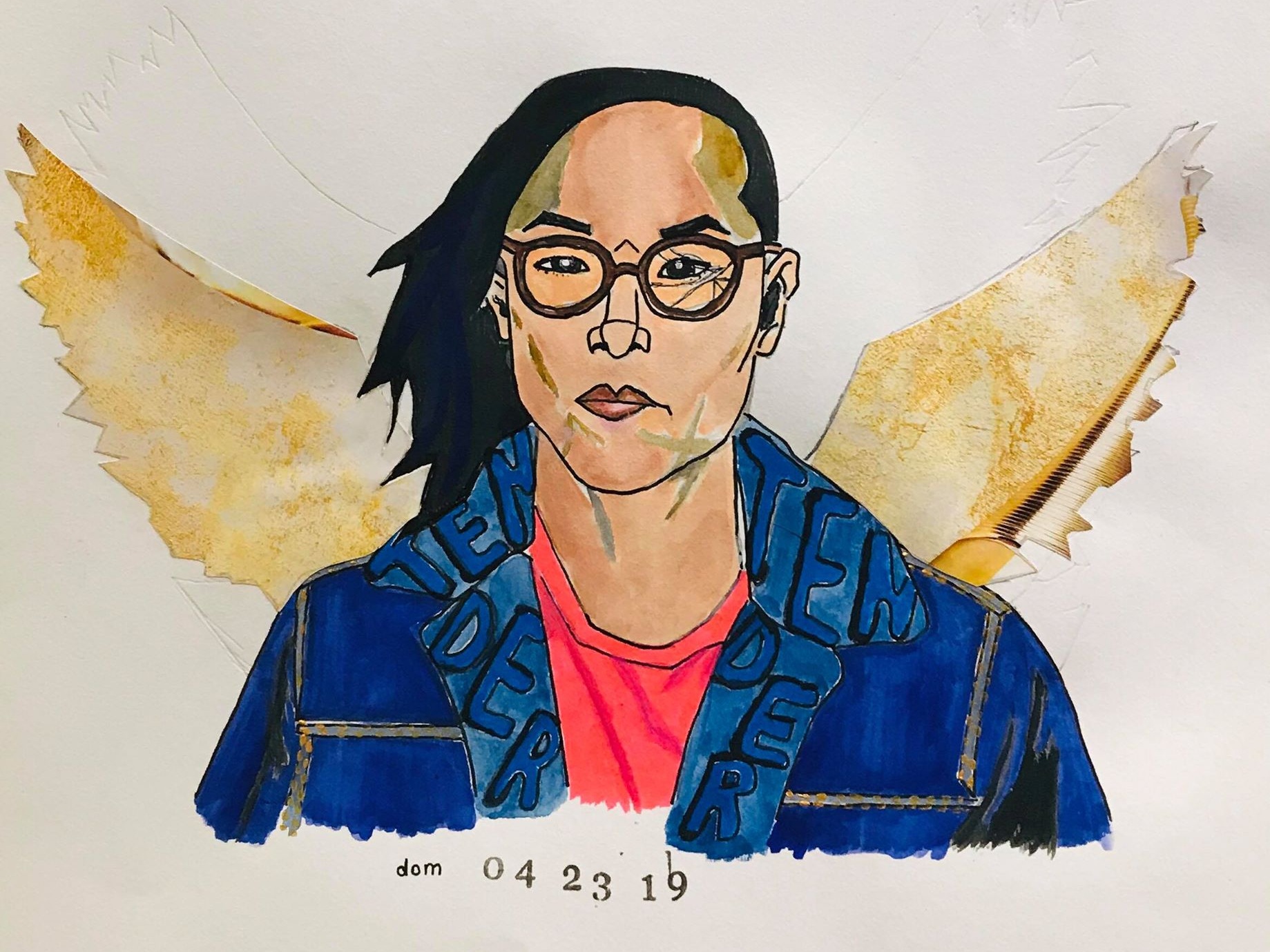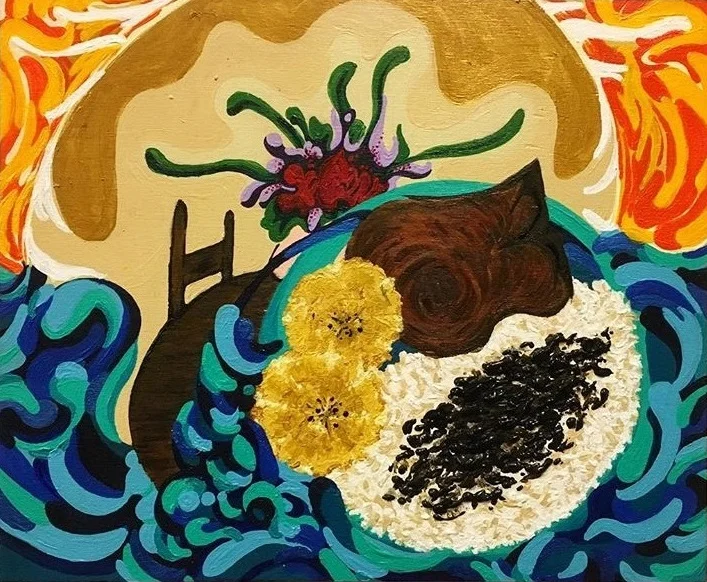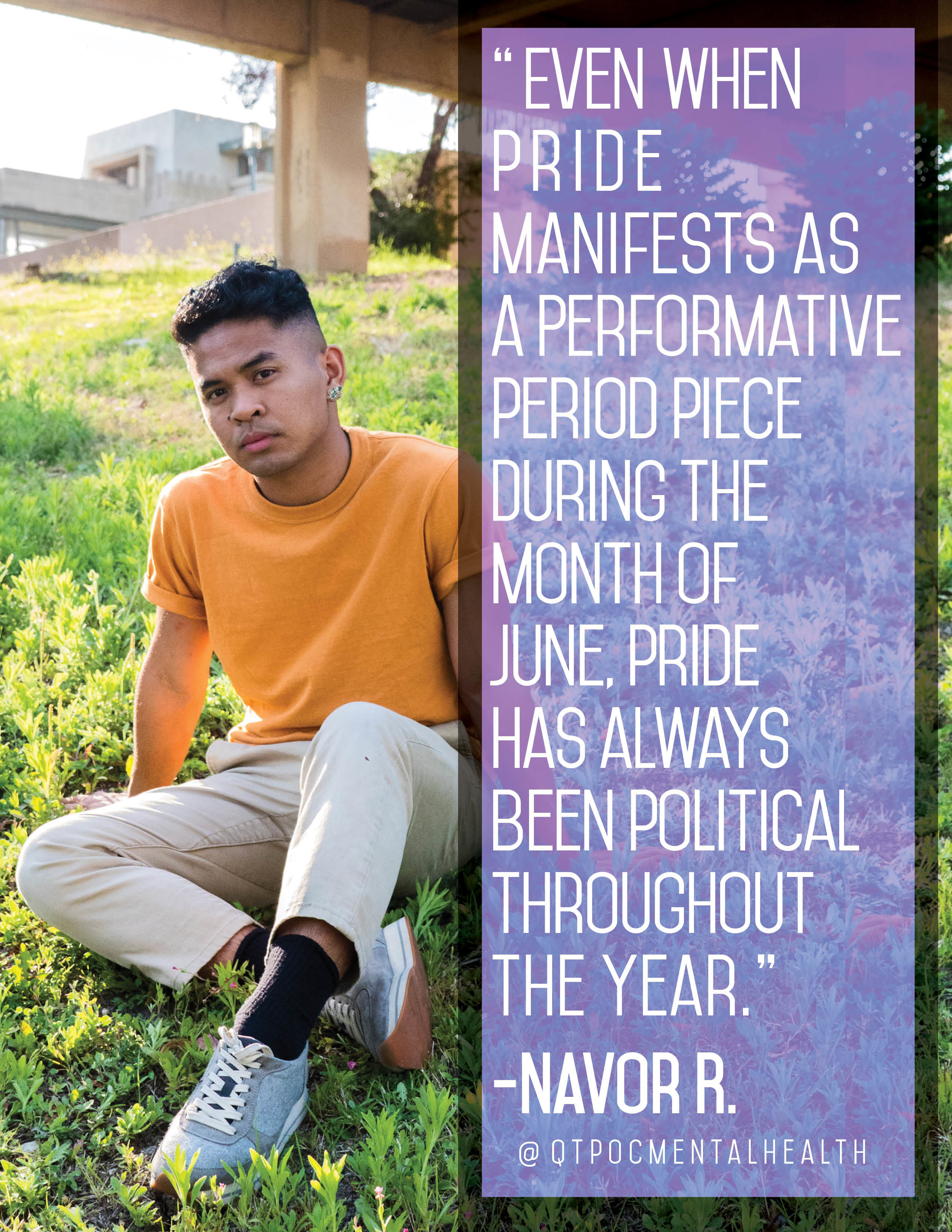Art by Rajesh Jyoti Saraswati
As much as social media is a go-to stress reliever, it's important we recognize that it's a source of stress.
When I tried to take an offline day off at home, of course I wound up on Facebook anyway. It was really fun talking to friends, but within an hour, I was calling out a misogynist.
Those interactions don’t mean we have to deactivate completely. There are plenty of ways to practice self-care and stay on Facebook, Twitter, tumblr, Instagram, Snapchat, YouTube, and all that while making the most of it.
Yet often people say if the news or dialogue stresses you out, just sign off.
Since we all have different self-care needs, it can be disrespectful to give advice that's inaccessible to the person receiving it. But it’s ironically on social media that we encounter well-intended others offering reminders to stop staring at the screen and unwind elsewhere.
Offline self-care works great for some people. Yet it's harder for those of us who don't have space to sequester ourselves at home with friends and family. Due to isolation, many of us don't have room IRL to even believe that we deserve space in our own lives. Social media is simply a better source of hope than the outside world.
We all deserve community, and many of us find that online.
It's a beautiful thing – I've had 'net friends helping me stay on the planet since I was a teen in the early 2000s – but one way we can feel shamed for this is when people say to deactivate Facebook or stay off social media for a significant break. For me, half a day is a significant break. Saying offline for longer than that just isn't beneficial for my mental health.
If you're reading this, it's unlikely you're going to go cold turkey on social media, and it’s probably not even in your best interest. So how can we practice self-care online while navigating the bullshit?
Here are realistic ways to stay connected on social media without burning out.
1) Find online escapes outside social media.
We can’t control who is going to show up in what conversation (or what bigoted ideas they are bringing to the table). But we can control how we navigate that. And it helps to be conscious consumers of media so we know where to point our browser to recharge after a heated convo.
Bookmark a few websites that are POC-centered or otherwise uplifting for you. Instead of relying on your Facebook feed to stay in touch, make a habit to check your fave websites directly. You can even make a folder labeled “self-care” so you don’t have to think about it when you’re low on energy and feeling foggy.
Reading / watching / listening to your fave sites might lead you right back to social media to excitedly share a quote or message a link to a friend, but you're still taking steps to spend more time away from Facebook and Twitter, where you can be interrupted by messages and notifications. And that's great!
2) Reach out to a friend.
It doesn’t matter if you know a person online or IRL. A friend is a friend no matter what, and that means they’ll offer non-judgmental support when you need it most (and when they have energy and time to do so, of course).
A simple, "Hi, how are you?" always works to start a conversation.
Even better, check in to see if they've done any self-care that day. This is a win-win, a reminder for them and for you. Sometimes hearing a friend say they're drinking tea or just took a shower is enough to motivate me to do the same.
If you're anxious about what to say, send over a link to something you think they'd like. Ask if they've read the article or saw the video you're excited about or want to critique together.
And of course, you can always send kittens, puppies, and other heartwarming things to deliver some joy to their inbox.
3) Hear news directly from sources you trust – not mainstream media.
It's tempting to click on links when you're scrolling and see a sensational headline. But before you give energy to mainstream media, take a look at the source.
Of course you want to stay up-to-date on what matters. And thankfully we don’t need Fox or CBS or HuffPo or whatever to get information. We’re saturated with information, and although we’re served the crap they want us to swallow, there are alternatives.
Rather than clicking on just any headline, go to Google to look for a source you actually want to read. You might have to look through a few pages of results before you find news from Mother Jones or The Grio.
And if all the options look bad, reach out to a friend who may know what’s going on. The fewer of us who have to read mainstream media to understand those perspectives, the better.
So let’s check in with each other more often, and we’ll hear the news from our own inner circle and from those whose viewpoints and ideas we respect.
4) Plan ways to feel relaxed even when you're (possibly arguing) online.
When you're less stressed, use some self-care time away from social media to plan for when you’re having a hard time tearing away.
Set up playlists that’ll help you when you’re overwhelmed. The music could be low tempo to help you chill out, or be upbeat as more of a distraction when your blood is boiling.
And if you shut down and don’t like reaching out when you’re anxious, make a list of people who you can reach out to. Check in with them when you’re more able to talk, and ask if they’re ok being contacted when you’re panicking or need to vent.
You can also have a go-to tea that offers soothing energy. Or keep a heating pad, aromatherapy oils, or a salve like Tiger Balm nearby as a cue to unwind.
It also helps me to have items to fidget with on my desk. That could mean clicking a pen or taking the cap on and off. I just got a fidget cube, and it’s been most used when I’m stressed out on Facebook.
5) Move away from the computer – or move the computer away from you – for a few minutes at a time.
Even if you are going to spend a lot of social time online, where you'll possibly encounter upsetting information and interactions, you can find brief moments of peace. For example, when you make a soothing cup of tea, hang out in the kitchen to enjoy the moment while the tea kettle boils. And leave your phone in another room so you aren’t tempted.
When I’ve been on the computer all day and notice my back tension getting worse, I know that’s my cue to do any one of the above. If all else fails, I move a foot away from my laptop to the floor to spend quality time with my foam roller and other self-massage tools. Some cost less than $10, and instead of getting anything fancy, you can just use a lacrosse ball.
Other ways to carve out a few minutes here and there include stretching, cooking, mindfully eating a snack, playing a game on your phone, going outside for fresh air, or spending time playing with a pet.
There's no reason to dismiss all the positives we get from internet community because, thankfully, they can outweigh the bullshit. But it helps to be aware of how you’re balancing things out.
If it is accessible to you, try one of the services like KeepMeOut, which blocks website for the amount of time you set, AppBlock for Android, or Freedom for iPhone. These help keep social media away from you for a short time, say two hours. Then you can build your willpower over time to help you focus on something away from social media.
For a human solution, ask friends who also spend time online if they can help you with accountability. Check in regularly with one another to see if you’re practicing self-care and making the most of your social media time.
If any of these methods doesn’t work for you, that’s ok. It's not easy to get offline, so only take on a self-care plan that's practical for you and doesn’t lead to feelings of shame or failure. The best self-care is whatever helps you live with a greater sense of ease.
And don’t forget to bookmark our social media:
- QTPoC Mental Health on Facebook
- Affirmations on Instagram
- @QTPoC on Twitter
- QTPoC-only Facebook group
We need community support to continue publishing!
Articles and artwork like these are only possible through your contributions. Please donate today to sustain the wellbeing of artists, writers, healers, and LGBTQ2IA+ people of color.
You can also support our team by picking up
a Rest for Resistance print zine.
Image description:
This is a busy desktop with screen, keyboard, mouse, and mug. It’s crowded on one side with overwhelming messages and reminders in black and white, including work alarms and “hey u available?” There’s an arrow pointing away labeled “LIFE?” and in the opposite corner the word “HELP.” The computer screen is pink and has cute animals. A to-do list is on the screen too with “ME TIME??” as the final point.
About Rajesh Jyoti Saraswati:
Rajesh Saraswati is an illustrator based out of Northern California currently creating comics and apparel. See their art at art-twink.tumblr.com or on Instagram or facebook under the same name.
About Dom Chatterjee:
The editor-in-chief of Rest for Resistance and founder of QTPoC Mental Health, Dom believes in the power of community to combat oppression. Dom is a non-binary desi-dutch-american person living with multiple disabilities.































